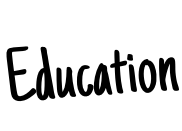|
|
|
|
Short set of Notes on the relationship between school climate and the gender achievement gap. |
|
|
Nutshell Studies |
The idea behind Nutshell Studies is to make it easier for students to get to grips with significant classic and contemporary sociological studies in a simple, straightforward, way that doesn’t involve a shed- 1. Francis, Taylor and Tereshchenko “Reassessing ‘Ability’ Grouping” (2019) 2. Archer, Hollingworth and Mendick: “Urban Youth and Schooling” (2010) 3. Bourdieu: Cultural Capital (1977) 4. Khan: Privilege: The Making of an Adolescent Elite at St. Paul’s School (2011) |
|
To what extent is educational achievement linked to different types of male and female identity? This short set of colourful notes explains how the "girls good / boys bad" model is mistaken... |
|
|
Functionalist perspectives on education (Durkheim and Parsons); the historical development of education in Britain; education and work. |
|
|
Overview of De Fraja et al's research into the relationship between parents, schools, students and Differential Educational Achievement ( “Must try harder: Evaluating the role of effort in educational attainment”, 2005) |
|
|
Marxist theories of education; the structural relationship between education and work; Ideological State Apparatuses; Correspondence Theory; relative autonomy; the Dominant Ideology thesis. |
|
|
Notes focused on Differential Achievement: The Ideological dimension - |
|
|
|
Looks at how the school curriculum is shaped (yes, really) by the relationship between education and work, society and politics. Also included are models of power (pluralism, instrumental and hegemonic Marxism) and the role of status groups. |
|
This complete chapter, taken from the 1st edition of AS Sociology for AQA, covers: 1. The role of education: structuralist perspectives. 2. The role of education: individualist perspectives. 3. Differential achievement. 4. Education and social policy. 5. School relationships and processes. |
|
|
|
This complete chapter, taken from the 2nd edition of AS Sociology for AQA, covers: 1. The role and purpose of education, including vocational education and training, in contemporary society. 2. Differential educational achievement of social groups by social class, gender and ethnicity in contemporary society. 3. The significance of educational policies, including selection, comprehensivisation and marketisation, for an understanding of the structure, role, impact and experience of education. 4. Relationships and processes within schools, with particular reference to teacher / pupil relationships, pupil subcultures, the hidden curriculum, and the organisation of teaching and learning. |
|
Structure and Organisation of Education |
Online Notes covering 3 aspects of the Structure and Organisation of Education in Britain: Introduction to Structure and Organisation |
|
A knowledge of research methods is integrated into the AQA Education module and this document identifies a range of educational research studies and the methods they used. The information is organised in terms of: module heading, studies and research methods (with a short description of the method used). |
|
|
Defining the hidden curriculum; education and socialisation; the content of the hidden curriculum; Structuralist and Interactionist perspectives; understanding classroom interaction; Interactionist methodology. |
|
|
The second part focuses on the hidden curriculum and social class, gender and ethnicity. |
|
|
The third section examines the development of pupil subcultures plus Labelling theory. |
|
|
The concept of a hidden curriculum is one that seems to belong to a bygone educational age – one in which we could be genuinely critical of hidden educational processes.. This resource suggests how you can breathe new life - |
|
|
It's well- The latest research based on the UK Millennium Cohort Study suggests that when it comes to educational achievement things are a lot more complicated than this simple formula might suggest. |
|
|
Part 1 looks at patterns of differential achievement (class, gender and ethnicity), plus intelligence and the IQ debate. |
|
|
This part develops theories of educational inequality: the meritocracy thesis, material deprivation, parental attitudes, class subcultures, situational constraints, culture and community. |
|
|
|
In part 3 the focus moves inside the education system to examine inequality within the school, cultural input and output: streaming, banding and setting, mixed- |
|
Concepts of: material deprivation, parental attitudes, class subcultures, situational constraints, cultural capital, cultural deprivation. |
|
|
The hidden curriculum: social class, labelling, stereotyping, streaming, banding and setting. |
|
|
The hidden curriculum: gender, anomie. |
|
|
The hidden curriculum: ethnicity, racial discrimination, stereotyping. |
|

